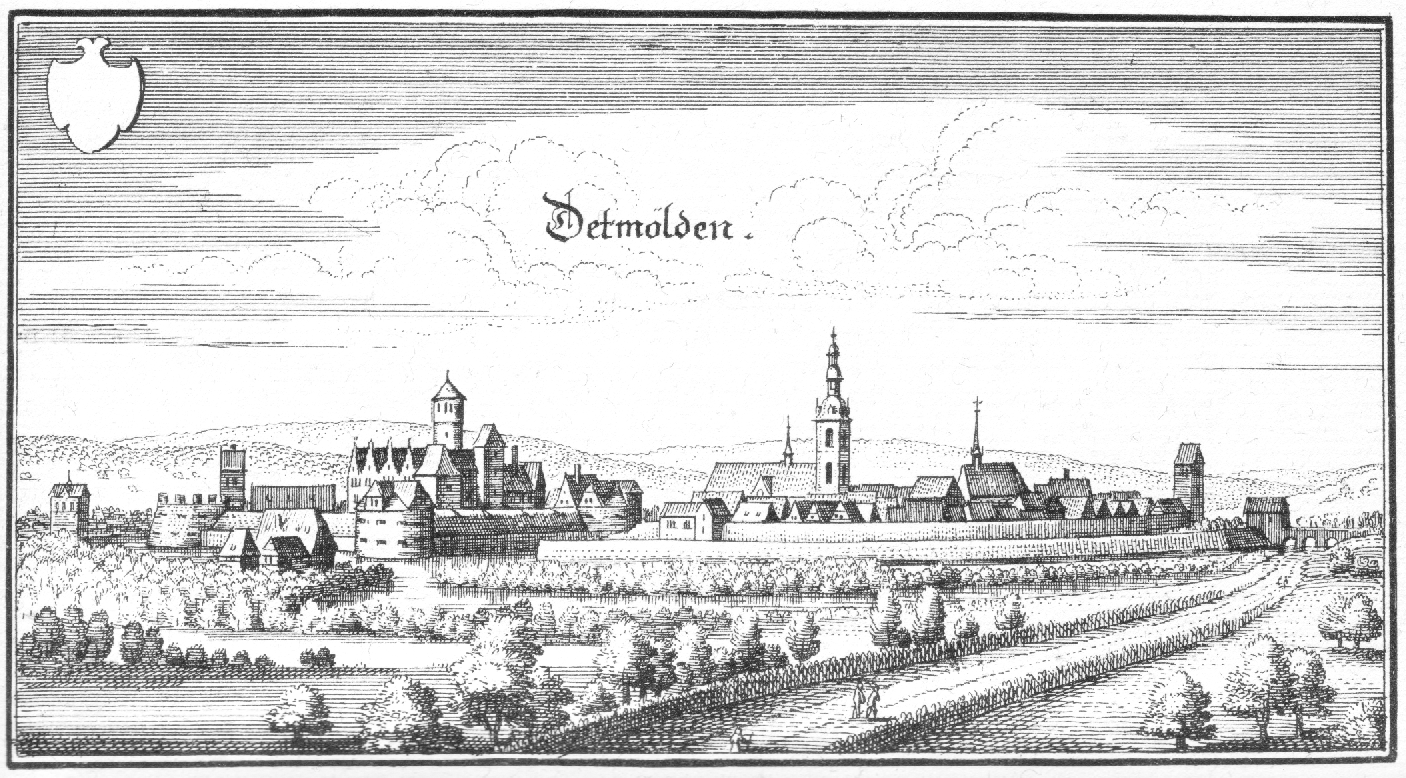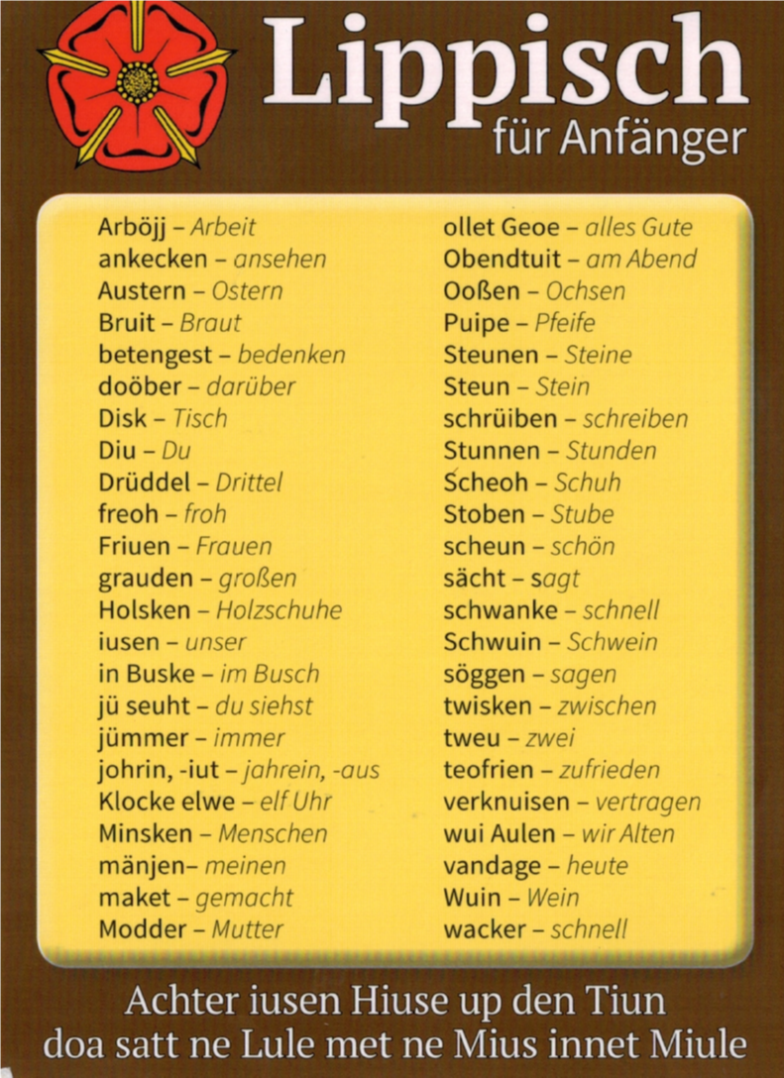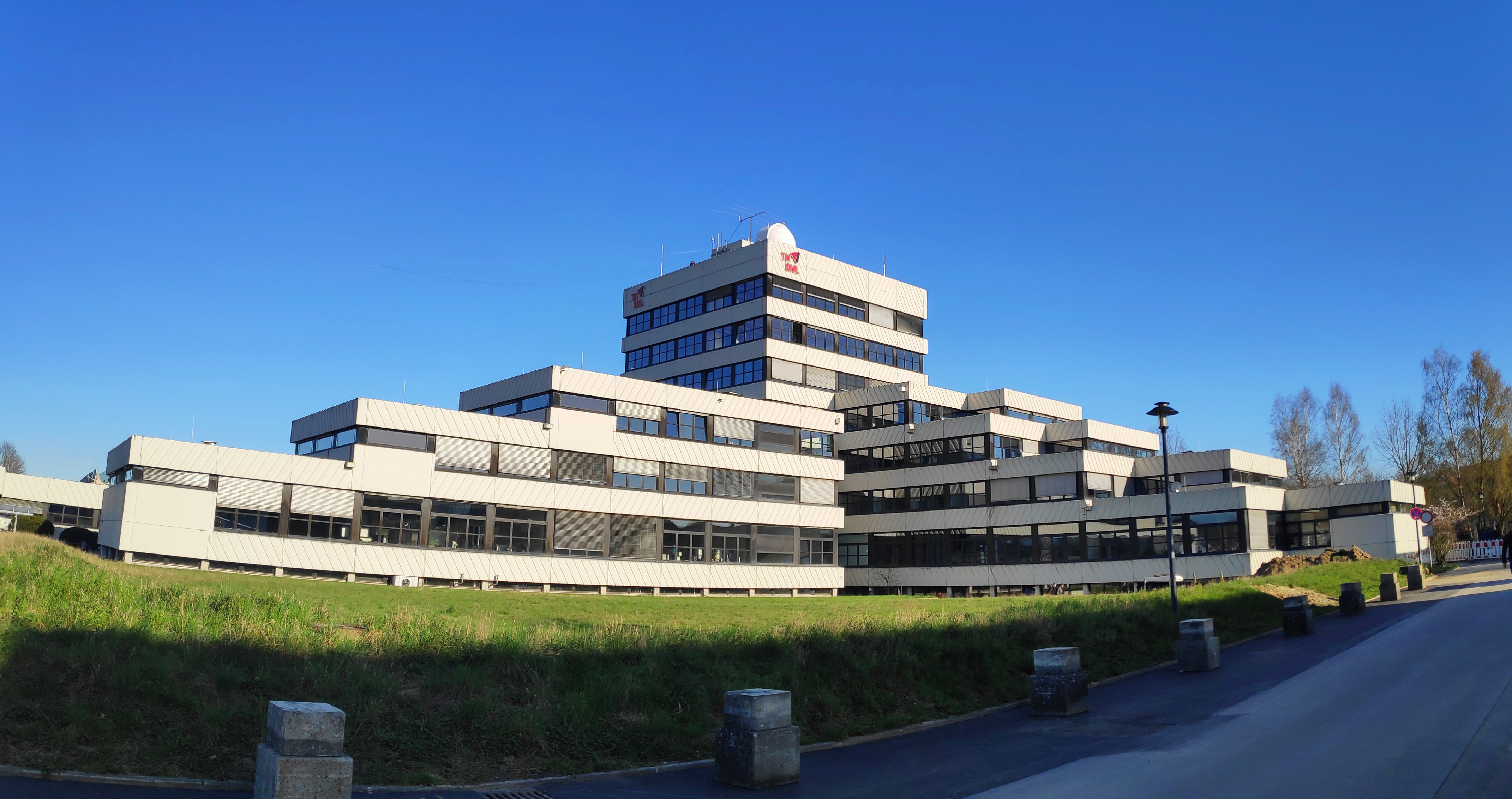|
Detmold
Detmold () is a city in North Rhine-Westphalia, Germany, with a population of . It was the capital of the small Principality of Lippe from 1468 until 1918 and then of the Free State of Lippe until 1947. Today it is the administrative center of the district of Lippe and of the Regierungsbezirk Detmold. The Church of Lippe has its central administration located in Detmold. The Reformed Redeemer Church is the preaching venue of the state superintendent of the Lippe church. History Iron Age About to the southwest of Detmold is the hill with a prehistoric circular rampart and the Hermann monument (german: Hermannsdenkmal). The monument commemorates the so-called Battle of the Teutoburg Forest, a battle in 9 AD which may or may not have been fought close to the present location of Detmold. In this encounter, Germanic tribes led by Hermann ( la, Arminius) defeated Roman legions under the command of Publius Quinctilius Varus. Middle Ages Detmold was first mentioned as ''Theotma ... [...More Info...] [...Related Items...] OR: [Wikipedia] [Google] [Baidu] |
Landestheater Detmold
Landestheater Detmold is a theatre for operas, operettas, musicals, ballets, and stage plays in Detmold, North Rhine-Westphalia, Germany. It began as the Hochfürstliches Lippisches Hoftheater, founded in 1825 by the court of Lippe. The company has five venues in Detmold. With its guest appearances in more than a hundred locations in Germany and neighboring countries, the theatre company states that it is the largest touring company in Europe. History In 1820 Leopold II, Prince of Lippe, with the support of his mother Princess Pauline of Anhalt-Bernburg, Princess Pauline, decided to have a court theatre built in Detmold. He commissioned the architect . The groundbreaking ceremony took place on 18 April 1825. On 8 November 1825, the curtain of the Hochfürstliches Lippisches Hoftheater went up for the first time for Mozart's opera ''La clemenza di Tito'', after only seven months of construction. August Pichler was appointed director of the new theatre. The respected Pichler trou ... [...More Info...] [...Related Items...] OR: [Wikipedia] [Google] [Baidu] |
Principality Of Lippe
Lippe (later Lippe-Detmold and then again Lippe) was a historical state in Germany, ruled by the House of Lippe. It was located between the Weser river and the southeast part of the Teutoburg Forest. It was founded in the 1640s under a separate branch of the House of Lippe. In 1910 it had an area of 1215 Kmq and over 150,000 inhabitants. History The founder of what would become the County of Lippe (1528–1789), then the Principality of Lippe (1789–1918) was Bernhard I, who received a grant of territory from Lothair III in 1123. Bernhard I assumed the title of ''Edler Herr zu Lippe'' ("Noble Lord at Lippe"). The history of the dynasty and its further acquisitions of land really began with Bernard II. His territory was probably formed out of land he acquired on the destruction of the Duchy of Saxony following the demise of Henry the Lion in 1180. From 1196 to 1666 the descendants of Bernard II passed their holdings from father to sons for sixteen generations. Thereafter unt ... [...More Info...] [...Related Items...] OR: [Wikipedia] [Google] [Baidu] |
Simon III Of Lippe
Lippe (later Lippe-Detmold and then again Lippe) was a historical state in Germany, ruled by the House of Lippe. It was located between the Weser river and the southeast part of the Teutoburg Forest. It was founded in the 1640s under a separate branch of the House of Lippe. In 1910 it had an area of 1215 Kmq and over 150,000 inhabitants. History The founder of what would become the County of Lippe (1528–1789), then the Principality of Lippe (1789–1918) was Bernhard I, who received a grant of territory from Lothair III in 1123. Bernhard I assumed the title of ''Edler Herr zu Lippe'' ("Noble Lord at Lippe"). The history of the dynasty and its further acquisitions of land really began with Bernard II. His territory was probably formed out of land he acquired on the destruction of the Duchy of Saxony following the demise of Henry the Lion in 1180. From 1196 to 1666 the descendants of Bernard II passed their holdings from father to sons for sixteen generations. Thereafter unt ... [...More Info...] [...Related Items...] OR: [Wikipedia] [Google] [Baidu] |
Hochschule Für Musik Detmold
The Hochschule für Musik Detmold is a university-level music school situated in Detmold, Germany. Academics The Hochschule offers performance degrees in composition, all orchestral instruments, piano, voice, opera, art-song, conducting, as well as degrees in church music and music education. Artistic Music Production (Musik-Tonmeister) is also offered at the Institute. Structure In 2007 there were 594 students matriculated, plus an additional 22 junior students. The Hochschule offers about 300 concerts per year. The present director is Professor Martin Christian Vogel. In 2008 he was re-elected to a further appointment. Associate directors are professors André Stärk and Norbert Stertz. Hans Bertels was appointed chancellor in May 2007. In December 2006 the Hochschule für Music Detmold Foundation was formed to help finance extraordinary activities. An alumni association was founded in October 2006; its present chairman is Prof. Martin Christoph Redel. History After ... [...More Info...] [...Related Items...] OR: [Wikipedia] [Google] [Baidu] |
Hobart Barracks
Hobart Barracks is a former military airfield, located 1.6 km east-northeast of Detmold in North Rhine-Westphalia, Germany. History Inter War years Flughafen Detmold was built in 1934 on the northeastern edge of the city and was intended for recreational (glider) flying. It was laid out as a 500 × 500 meters all-way grass airfield with a single hangar. Before it was opened it was already decided to expand the airfield to 700 × 700 meters. Later it was decided to expand the airfield even further (1000 × 1000 m) to allow it to be used as an emergency airfield by the Luftwaffe. Civilians only got to use the airfield briefly though, as three months later the Luftwaffe took over the airfield on 15 February 1935 and they began converting it with a number of large hangars and a barracks compound west of the airfield. A flying school and school facilities were built. Aircraft used in flight instruction were: Bücker Bü 131, Focke-Wulf Fw 44, Heinkel He 72 biplanes and Kle ... [...More Info...] [...Related Items...] OR: [Wikipedia] [Google] [Baidu] |
Hermannsdenkmal
The ''Hermannsdenkmal'' (German for "Hermann Monument") is a monument located southwest of Detmold in the district of Lippe (North Rhine-Westphalia), in Germany. It stands on the densely forested ', sometimes also called the ''Teutberg'' or ''Teut'', a hill (elevation 386 m) in the Teutoburger Wald (Teutoburg Forest) range. The monument is located inside the remains of a circular rampart. The monument was constructed between 1838 and 1875 to commemorate the Cherusci war chief Arminius (in German, '' Hermann'') and his victory over Rome at the Battle of the Teutoburg Forest in 9 AD. When the statue was built, its location was believed to be near the original battle site, although experts now consider it more likely that the battle took place near Kalkriese, about 100 km to the north-west. Background In 9 AD, Roman-educated Arminius, a member of the Cherusci people, turned against his former Roman allies and led an alliance of Germanic tribes to defeat three legions under Publi ... [...More Info...] [...Related Items...] OR: [Wikipedia] [Google] [Baidu] |
OWL University Of Applied Sciences And Arts
The Technische Hochschule Ostwestfalen-Lippe (abbreviated: TH OWL, English: OWL University of Applied Sciences and Arts) is a state tech university in the Ostwestfalen-Lippe area in Lemgo, which is part of North Rhine-Westphalia. Additional campuses are in Detmold and Höxter. About 6,600 students work closely with 173 professors and about 550 other staff members in research, teaching and administration. For several years, the university has been one of the ten most research-intensive universities of applied sciences in Germany. Due to its research performance, it was admitted to the European University Association in 2010. Locations Historically, the locations have distinguished themselves as follows: Lemgo is the engineering focus of the TH OWL. The departments of Media Production, Life Science Technologies, Electrical Engineering and Computer Science, Mechanical Engineering and Mechatronics, Production and Wood Engineering as well as Economics are located on the campus ... [...More Info...] [...Related Items...] OR: [Wikipedia] [Google] [Baidu] |
Detmold (region)
Detmold () is one of the five of North Rhine-Westphalia, Germany, located in the north-east of the state. It is congruent with region of Ostwestfalen-Lippe (OWL, East Westphalia–Lippe). The Regierungsbezirk was created in 1947 when the former state of Lippe was incorporated into North Rhine-Westphalia by merging the former Regierungsbezirk Minden with the territory of Lippe-Detmold. The Regierungsbezirk Minden dates back to 1815, when the municipality type was created initially. Location The Regierungsbezirk Detmold is located in the north-east of North Rhine-Westphalia and therefore it forms the area where the German low mountains are divided from the North German Plain. As the Regierungsbezirk has an expanse of circa 6,500 km², it is one fifth of the area of North Rhine-Westphalia. North and east of the Regierungsbezirk is the German state of Lower Saxony, south there is the state of Hesse. At the western border is the Regierungsbezirk of Arnsberg and the Regierungs ... [...More Info...] [...Related Items...] OR: [Wikipedia] [Google] [Baidu] |
Stephan, Prince Of Lippe
Stephan, Prince of Lippe (''Stephan Leopold Justus Richard Prinz zur Lippe'') was born on 24 May 1959 in Detmold, Germany. He is the son of Armin, Prince of Lippe and Traute Becker, and the current head of the House of Lippe since 2015. His traditional titles include Prince of Lippe, Lord and Count of Biesterfeld, Count of Schwalenberg and Sternberg, Hereditary Burgrave of Utrecht, etc. The prince is the owner of Detmold Castle which is open to the public. He also owns vast forests in the Teutoburger Wald region and in the state of Brandenburg. He is a lawyer and became widely known for his opposition to a nature reserve in the district of Lippe which would have included large parts of his forests. He finally succeeded in getting the project dropped in 2012. Marriage and children He married Countess Maria of Solms-Laubach, daughter of Otto, 10th Count of Solms-Laubach and Princess Madeleine of Sayn-Wittgenstein-Berleburg, on 15 October 1994 in Detmold. The wedding was attende ... [...More Info...] [...Related Items...] OR: [Wikipedia] [Google] [Baidu] |
North Rhine-Westphalia
North Rhine-Westphalia (german: Nordrhein-Westfalen, ; li, Noordrien-Wesfale ; nds, Noordrhien-Westfalen; ksh, Noodrhing-Wäßßfaale), commonly shortened to NRW (), is a States of Germany, state (''Land'') in Western Germany. With more than 18 million inhabitants, it is the List of German states by population, most populous state of Germany. Apart from the city-states, it is also the List of German states by population density, most densely populated state in Germany. Covering an area of , it is the List of German states by area, fourth-largest German state by size. North Rhine-Westphalia features 30 of the 81 German municipalities with over 100,000 inhabitants, including Cologne (over 1 million), the state capital Düsseldorf, Dortmund and Essen (all about 600,000 inhabitants) and other cities predominantly located in the Rhine-Ruhr metropolitan area, the largest urban area in Germany and the fourth-largest on the European continent. The location of the Rhine-Ruhr at the h ... [...More Info...] [...Related Items...] OR: [Wikipedia] [Google] [Baidu] |
Lippe
Lippe () is a ''Kreis'' (district) in the east of North Rhine-Westphalia, Germany. Neighboring districts are Herford, Minden-Lübbecke, Höxter, Paderborn, Gütersloh, and district-free Bielefeld, which forms the region Ostwestfalen-Lippe. The district of Lippe is named after the Lords of Lippe, who originally lived on the river Lippe and founded Lippstadt there, and their Principality of Lippe. It was a state within the Holy Roman Empire and retained statehood until 1947, when it became a district of North Rhine-Westphalia. History The Lippe district nearly covers the same area as the historic county of Lippe. The first mention of this country was in 1123; it grew in power slowly in the following centuries. In 1528 it became a county, in 1789 it was elevated to a principality. Unlike many other countries of the Holy Roman Empire in the area, Lippe kept its independence in the Napoleonic era, and thus wasn't incorporated into Prussia afterwards. It was one of the smaller memb ... [...More Info...] [...Related Items...] OR: [Wikipedia] [Google] [Baidu] |
Battle Of The Teutoburg Forest
The Battle of the Teutoburg Forest, described as the Varian Disaster () by Ancient Rome, Roman historians, took place at modern Kalkriese in AD 9, when an alliance of Germanic peoples ambushed Roman legions and their auxiliaries, led by Publius Quinctilius Varus. The alliance was led by Arminius, a Germanic officer of Varus's auxilia. Arminius had acquired Roman citizenship and had received a Roman military education, which enabled him to deceive the Roman commander methodically and anticipate the Roman army's tactical responses. Teutoburg Forest is commonly seen as one of the most important defeats in Roman history, bringing the triumphant period of expansion under Augustus to an abrupt end. The outcome of this battle dissuaded the Romans from their ambition of conquering Germania, and is thus considered one of the most important events in European history. The provinces of Germania Superior and Germania Inferior, sometimes collectively referred to as ''Roman Germania'', were s ... [...More Info...] [...Related Items...] OR: [Wikipedia] [Google] [Baidu] |






.jpg)
